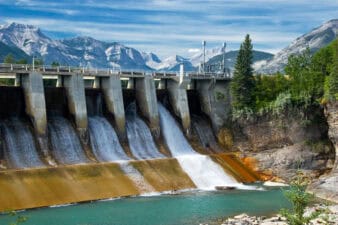One of the biggest stories in the financial world thus far in 2019 has been negative yields around the world.
As I type this, there are numerous countries — mostly in Europe, but Japan is a notable exception — whose governments are able to lend money at negative interest rates. In other words, instead of borrowing $100 and being forced to pay back $105 or $110, these governments are borrowing $100 and paying back $98.
Yes, this is really happening all over Europe. It truly boggles the mind.
So far in North America, we’ve avoided negative interest rates. Both in Canada and the United States, our governments are forced to pay a little over 1% per year to borrow money for a decade. That’s a long way from negative rates, but investors should also remember that 10-year government bond rates were much higher less than a year ago. These rates were more than 3% in the United States and 2.5% in Canada as recently as October 2018.
If you believe negative interest rates are coming to North America, there are a few ways you can position your portfolio to take advantage of this unique situation. Let’s take a closer look at some stocks that should do well in such a world.
H&R REIT
Any real estate company will do well when interest rates plunge. This automatically makes all their properties more valuable, since rents will stay the same but the return demanded will go down.
For a real estate company with ambitious expansion plans, negative interest rates are doubly good. Not only does the value of the portfolio go up, but the cost of borrowing for new projects goes down. That’s good news in the short term.
H&R Real Estate Investment Trust (TSX:HR.UN) is aggressively expanding its empire outside Canada, with mixed-use developments currently underway in Miami, Long Beach, San Francisco, Seattle, Austin, and New York City. The company is focused on expanding its U.S. presence, particularly in the residential space.
We can’t forget about the other parts of H&R’s portfolio either, which would also benefit from a further decrease in interest rates. These parts of the business include nearly 12 million square feet of office space, 14 million square feet of retail space, and a joint venture that owns nearly 10 million square feet of industrial space. H&R has quietly grown into a real powerhouse with plenty of growth potential, especially into the United States.
Shares currently yield 6.2% with a payout ratio under 80%. That’s an excellent payout today that would become all the more attractive if interest rates fell further.
Enbridge
Enbridge (TSX:ENB)(NYSE:ENB) is another company that would benefit from lower interest rates. After all, the company’s business model is to finance long-term assets with cheap borrowed money, pocketing the spread between the two as profit.
So, why have Enbridge shares fared so poorly over the last year as interest rates (and its own borrowing costs) have tanked?
Enbridge is dealing with a few short-term issues. Its most recent problem has been its Line 3 oil pipeline in Michigan. The state is after the company to replace the line immediately, while Enbridge has an agreement with the previous governor saying a replacement by 2024 is good enough. I’m confident this problem will get solved, which should be enough to give shares a nice bump in the short term.
Over the long term, Enbridge’s portfolio of high-quality assets are exactly what you want to own. It’s the largest energy infrastructure company in North America, owning everything from oil and natural gas pipelines to one of the continent’s largest natural gas utilities. These assets are only going to get more valuable over time.
Enbridge also pays one of the best dividends out there, with a current yield of 6.7%. The company recently hiked its dividend by 10% and has pledged to deliver 10% annual increases in 2019 and 2020. If the company delivers, investors will be looking at a yield on cost of more than 8% in just 18 months.
The bottom line
If interest rates continue to plunge, you’ll be ready. Great stocks like H&R REIT and Enbridge will likely get an additional boost if that happens, and if it doesn’t, it’s not a big deal. They’re still great investments today.








